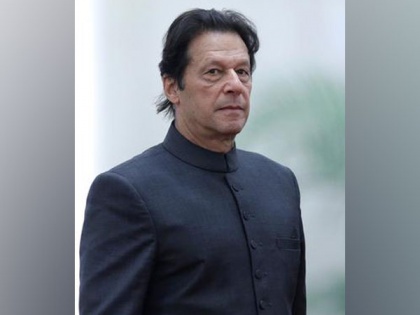Pakistan in trouble as Taliban's control over Afghanistan incites terrorists
By ANI | Published: September 6, 2021 08:15 PM2021-09-06T20:15:59+5:302021-09-06T20:25:03+5:30
Pakistan, which celebrated Taliban takeover of Afghanistan is now waking up to the realisation that the group's victory is inciting terrorists into insurgency in its own region, according to media reports.

Pakistan in trouble as Taliban's control over Afghanistan incites terrorists
Pakistan, which celebrated Taliban takeover of Afghanistan is now waking up to the realisation that the group's victory is inciting terrorists into insurgency in its own region, according to media reports.
When Pakistan Prime Minister Imran Khan applauded the Taliban's victory and said that they broke "shackles of slavery", he was unaware that the outfit's victory in a neighbouring country can trigger militants in his own.
For the weeks, various Pakistan's top leaders and retired army generals celebrated the Taliban's victory so as the militants in Pakistan, as they are sworn enemies of Pakistani generals and the government, reported The Washington Post.
Now, Islamabad is noticing the unrest washing across the Afghan border. After the recent victory of the Taliban, the militant groups are incited to create an insurgency in Pakistan, The Washington Post added.
The Taliban, not only inspired the militants but also Pakistan's hard-line religious parties that aim to reshape the country in a more fundamentalist Islamist image.
Director of the Pakistani Institute for Peace Studies in Islamabad, Muhammad Amir Rana said, "With the Taliban taking over, anti-Pakistan terrorist groups will be emboldened, but it doesn't end there. There could be an emergence of a new war of narratives in the country, which will transform ongoing debates about state and society and the role that religion plays," the Washington Post reported on Sunday.
Extremist and nonviolent groups alike, he added, "will think, 'If Islamic rule could happen in Afghanistan, why can't it happen here?'
Pakistani officials are also afraid that Tehreek-i-Taliban Pakistan (Pakistani Taliban) could resurface in the wake of the Taliban's victory in the neighbouring country as TTP is allied to the Afghan Taliban.
In the last decade, TTP conducted nearly 1,800 attacks on Pakistani state and civilian targets.
Recently, TTP also celebrated the Taliban's victory in Afghanistan and claimed another attack last week in which two Pakistani soldiers were killed.
In July, a UN report said that the TTP had nearly 6,000 trained fighters on the Afghan side of the border. It also said that the Taliban and the TTP have maintained relations.
After taking over Afghanistan, the Taliban also released senior leaders and hundreds of militants of TTP from prisons.
Chairman of Pakistan's Senate Defense Committee, Mushahid Hussain Syed said, "There is caution because of the Taliban's track record and their affinity with the sworn foes of Pakistan like the TTP. There is also optimism that this time around, the Afghan Taliban are more chastened," reported The Washington Post.
Recently, Islamabad asked the Taliban to force TTP fighters to surrender their arms in exchange for amnesty, The Washington Post reported quoting a former high-ranking anonymous TTP commander as saying on a messaging app.
However, the Taliban refused to hand over TTP members but said that it would pressure them to hold peace talks with the Pakistani government, the TTP commander informed.
"If the Afghan Taliban tried to force the TTP, then some of its commanders can join (Islamic State-Khorasan)," he said.
The TTP's presence in Pakistan started weakening in previous years as the country's army launched a massive offensive against them.
However, in 2018, the TTP regrouped under new leader Noor Wali Mehsud.
Counterterrorism expert at the US Military Academy at West, Amira Jadoon said, "Mehsud is now preparing for a comeback."
Recently, Mehsud has featured the outfit as something mirroring the victorious Taliban.
Jadoon said, "They see the Afghan Taliban as a pathway they can adopt."
Experts have also said that the Taliban's victory has added a volatile element to the mainstream politics playing out on Pakistan's streets.
In 1980, Pakistan took a more Islamist turn under the former General Mohammed Zia ul-Haq. In a coup, he removed the then leftist prime minister Zulfikar Ali Bhutto, according to The Washington Post.
Since then, Pakistan has been facing a developing power and destabilising potential of ultraconservative religious parties.
( With inputs from ANI )
Disclaimer: This post has been auto-published from an agency feed without any modifications to the text and has not been reviewed by an editor
Open in app